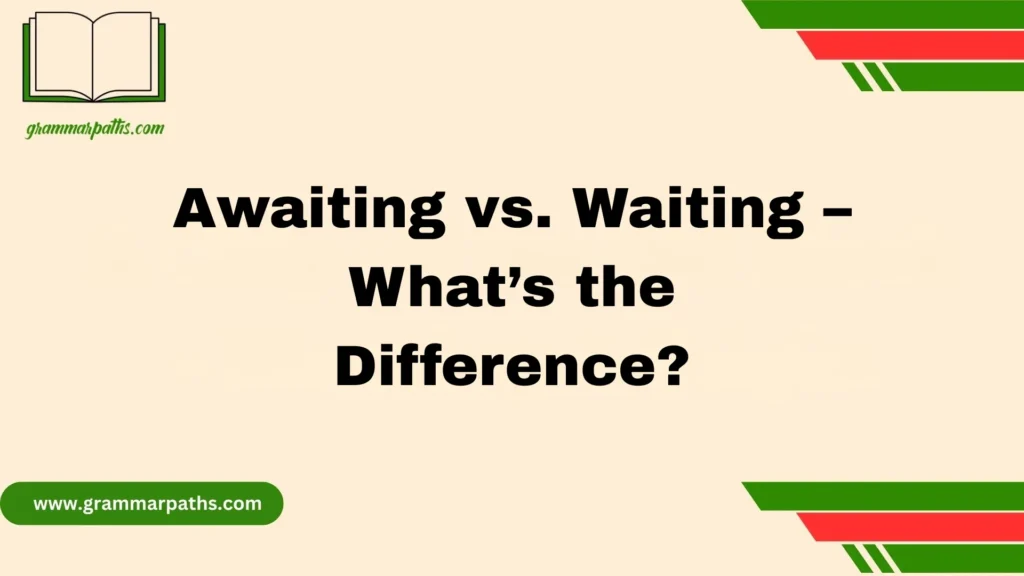In everyday conversation, we often rely on words and phrases as a powerful tool to communicate ideas quickly. However, even a simple phrase like “sounds great” can create confusion if the message isn’t fully understood. I’ve noticed that many people get tripped up by mixed-up sentences or redundant, awkward wording that seems correct at first but is technically incorrect. Teachers and editors often flag such usage issues, especially in speech or writing, because clarity and precision matter. For example, using “hence why” is a classic example of redundancy that could be replaced with alternatives like “therefore” or simply “hence” to make communication efficient and effective.
When I write articles or notes, I always aim for clarity in tone and wording, keeping lines short and easy to follow. In formal or informal contexts, adding extra words unnecessarily can dilute meaning. Paying attention to understanding, impact, and proper grammar ensures that your communication doesn’t fail. Some tips I often share as a communicator include using excerpted lines to highlight key points, avoiding redundancy, and choosing alternatives carefully. This approach ensures your language stays precise, your notes are useful, and your overall message lands clearly without confusion.
The Grammar Behind “Sounds Great”
Before we explore meaning and usage, let’s break down the grammar.
- Subject implied: In English conversation, we often drop the subject “That.” When you say “Sounds Great,” the full sentence is actually “That sounds great.”
- Verb: “Sounds” is the third-person singular form of the verb sound, functioning as a linking verb here.
- Adjective: “Great” acts as a subject complement, describing how the idea or suggestion “sounds” to you.
So, grammatically, it’s spot-on.
“Sounds Great” vs. “Sound Great”
Many learners mix these up. The difference lies in subject-verb agreement:
| Phrase | Correct Usage | Example |
| Sounds Great | Singular subject (it/that) | “Dinner at 7? Sounds Great.” |
| Sound Great | Plural subject (they/these) | “Your ideas sound great.” |
Notice that “Sounds Great” is almost always the correct choice in everyday responses because we’re usually reacting to one suggestion or plan.
The Meaning of “Sounds Great”
At its core, “Sounds Great” doesn’t literally describe sound. Instead, it expresses approval, agreement, or enthusiasm toward something.
- Literal meaning: If taken literally, it suggests that something “audibly” sounds pleasing. But that’s not how it’s used most of the time.
- Figurative meaning: It signals positive reception—you’re on board, you approve, or you’re excited about the suggestion.
For example:
- Friend: “Let’s watch a movie tonight.”
- You: “Sounds Great!” (meaning: I like that idea.)
The phrase bridges literal and figurative interpretation seamlessly, making it adaptable in both casual and professional settings.
Everyday Usage of “Sounds Great”
This phrase shows up everywhere. Let’s look at where it fits naturally:
Casual Conversations
You’ll hear it in daily chats among friends and family:
- “We’re having pizza tonight.” → “Sounds Great.”
- “I’ll pick you up at 8.” → “Sounds Great.”
It conveys warmth, agreement, and enthusiasm.
Professional Settings
Surprisingly, “Sounds Great” works well in workplaces too, especially in informal emails or meetings. It’s positive without being overly formal.
Examples:
- “I’ll send you the report by Friday.” → “Sounds Great, thank you.”
- “Let’s schedule the call for Monday morning.” → “Sounds Great, that works.”
Responding to Invitations or Plans
It’s a go-to phrase when confirming schedules:
- “We’ll grab lunch tomorrow at noon.” → “Sounds Great.”
- “The meeting is at 3 PM.” → “Sounds Great.”
Acknowledging Positive News
You can use it as a quick, friendly response to good news:
- “I got the job!” → “Sounds Great, congratulations!”
Social Nuances and Tone
Tone plays a big role in communication. “Sounds Great” usually feels friendly and supportive, but context matters.
When It Feels Enthusiastic
- With upward intonation and a smile, it signals genuine excitement.
When It Feels Neutral or Insincere
- Over text or in rushed conversation, it can sometimes sound dismissive, like you’re brushing someone off.
Pro Tip
If you want to avoid sounding flat, pair it with another positive phrase:
- “Sounds Great, I’ve been looking forward to it.”
- “Sounds Great, thanks for arranging this.”
Comparing “Sounds Great” to Similar Phrases
Let’s look at how it stacks up against other common responses.
| Phrase | Tone | Common Usage | Example |
| Sounds Great | Enthusiastic, casual-professional | Accepting suggestions or news | “Lunch tomorrow? Sounds Great.” |
| Sounds Good | Neutral, slightly casual | Everyday approval | “I’ll call later.” → “Sounds Good.” |
| Perfect | Strong approval, confident | When the plan is final | “I’ll send it by 5.” → “Perfect.” |
| Awesome | Very casual, youthful | Informal chats | “We’re going to the beach.” → “Awesome.” |
| That works for me | Polite, flexible | Professional or formal | “Shall we meet at 10?” → “That works for me.” |
Cultural Popularity and Digital Usage
“Sounds Great” isn’t just a phrase—it’s part of modern communication culture.
- American English: Particularly common in the U.S., where upbeat, enthusiastic responses are favored.
- Digital communication: It’s short, positive, and perfect for texts, chats, and emails.
- Pop culture: Movies, TV shows, and media reinforce its popularity, keeping it fresh in conversational English.
Fun fact: The phrase appears frequently in subtitles and scripts, which helps non-native speakers pick it up quickly.
Alternatives and Synonyms for Different Situations
While “Sounds Great” works most of the time, it’s good to have alternatives.
Professional Alternatives
- “That works for me.”
- “That would be fine.”
- “I’ll look forward to it.”
Friendly Alternatives
- “Cool.”
- “Awesome.”
- “Love it.”
Cross-Cultural or ESL-Friendly Alternatives
- “Okay.”
- “That’s fine.”
- “Good idea.”
These alternatives prevent repetition and help you adjust tone depending on the audience.
Common Mistakes and Misunderstandings
Even though “Sounds Great” is simple, people sometimes get it wrong.
Mixing Up Grammar
- “That sound great.” (incorrect subject-verb agreement)
- “That sounds great.”
Overusing the Phrase
If you reply with “Sounds Great” to everything, it may lose meaning. Variety is key.
Misinterpretation in Formal Emails
In highly formal emails, “Sounds Great” can feel too casual. Replace it with:
- “That would be excellent.”
- “I appreciate that arrangement.”
Case Studies: “Sounds Great” in Real-Life Contexts
Case Study 1: Casual Chat
Friend: “We’re ordering Chinese food tonight.”
You: “Sounds Great!”
👉 Tone: enthusiastic, casual approval.
Case Study 2: Workplace Email
Colleague: “I’ll send over the proposal tomorrow morning.”
You: “Sounds Great, thank you for handling that.”
👉 Tone: professional but friendly.
Case Study 3: Academic Setting
Professor: “The assignment deadline has been extended by two days.”
Student: “Sounds Great, that gives me more time.”
👉 Tone: respectful and appreciative.
Conclusion
Using phrases like “sounds great” in everyday language is generally correct, but the key is clarity and precision. Even a powerful tool like words can fail if mixed-up or redundant wording is used. By paying attention to grammar, avoiding awkward or technically incorrect phrases, and choosing alternatives like “therefore” or “hence” when needed, you can ensure your communication is effective, efficient, and well understood. Whether in speech or writing, short, clear lines and a careful tone make a message impactful and easy for people to follow.
FAQs
Q1: Is it wrong to say “sounds great” in formal writing?
Not necessarily. While it’s common in everyday speech, in formal writing, you might want to choose more precise alternatives depending on context.
Q2: What are common mistakes with phrases like “sounds great”?
Common errors include using redundant or awkward phrases, mixed-up wording, or technically incorrect grammar, such as “hence why.”
Q3: How can I make my communication more effective?
Focus on clarity, short lines, proper tone, and avoid adding extra unnecessary words. Use efficient and precise alternatives when needed to enhance understanding.
Q4: Can “sounds great” ever fail as a phrase?
Yes, if the message is misunderstood due to awkward, redundant, or mixed-up wording. Paying attention to grammar, usage, and impact ensures it works as intended.

Grace Marie is the dedicated writer behind GrammarPaths.com, where she shares her passion for English grammar, idioms, and writing mastery. With a strong background in language studies and years of experience helping learners improve their communication skills, Grace creates clear, practical, and engaging content that makes English easy to understand.










